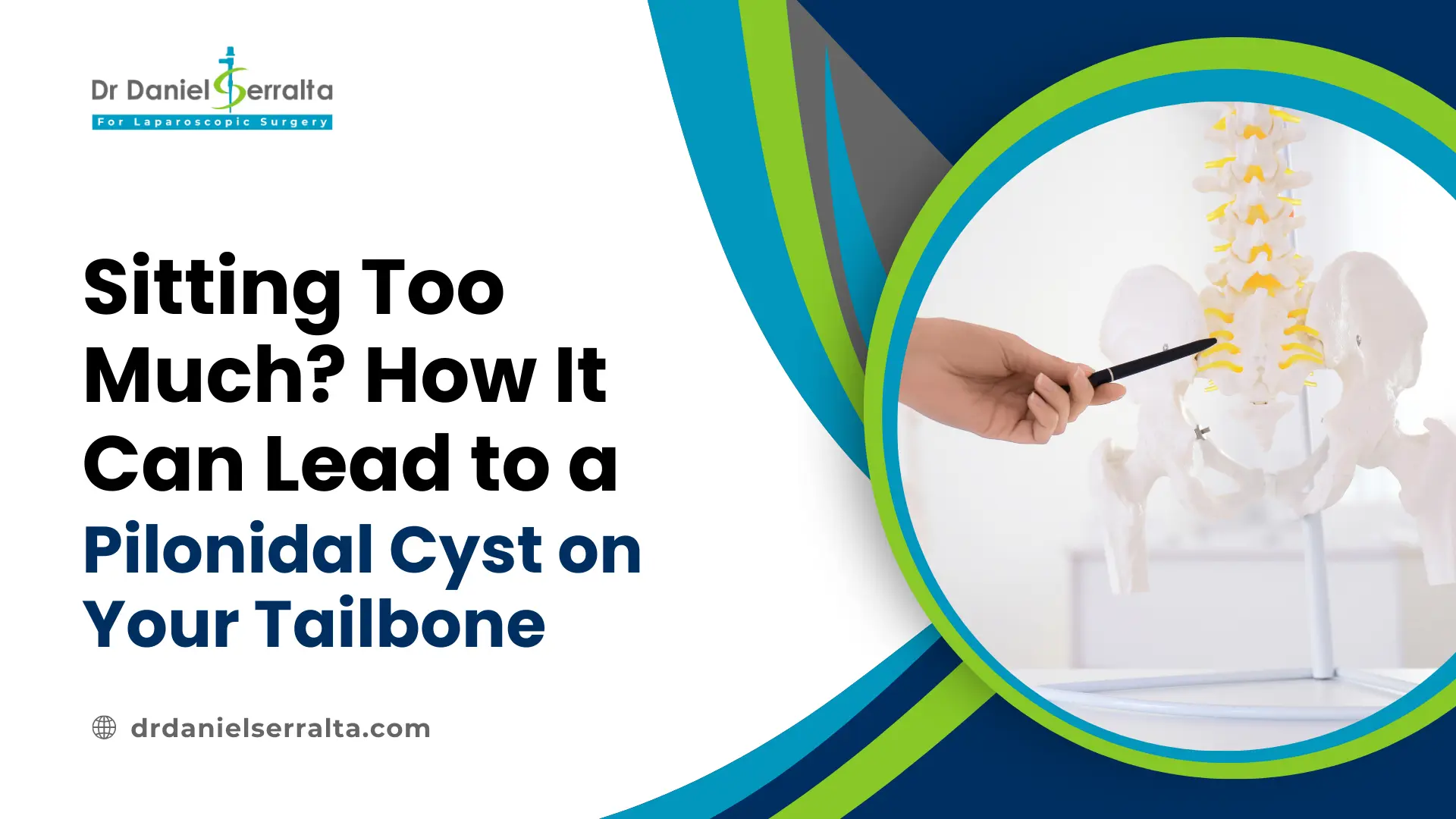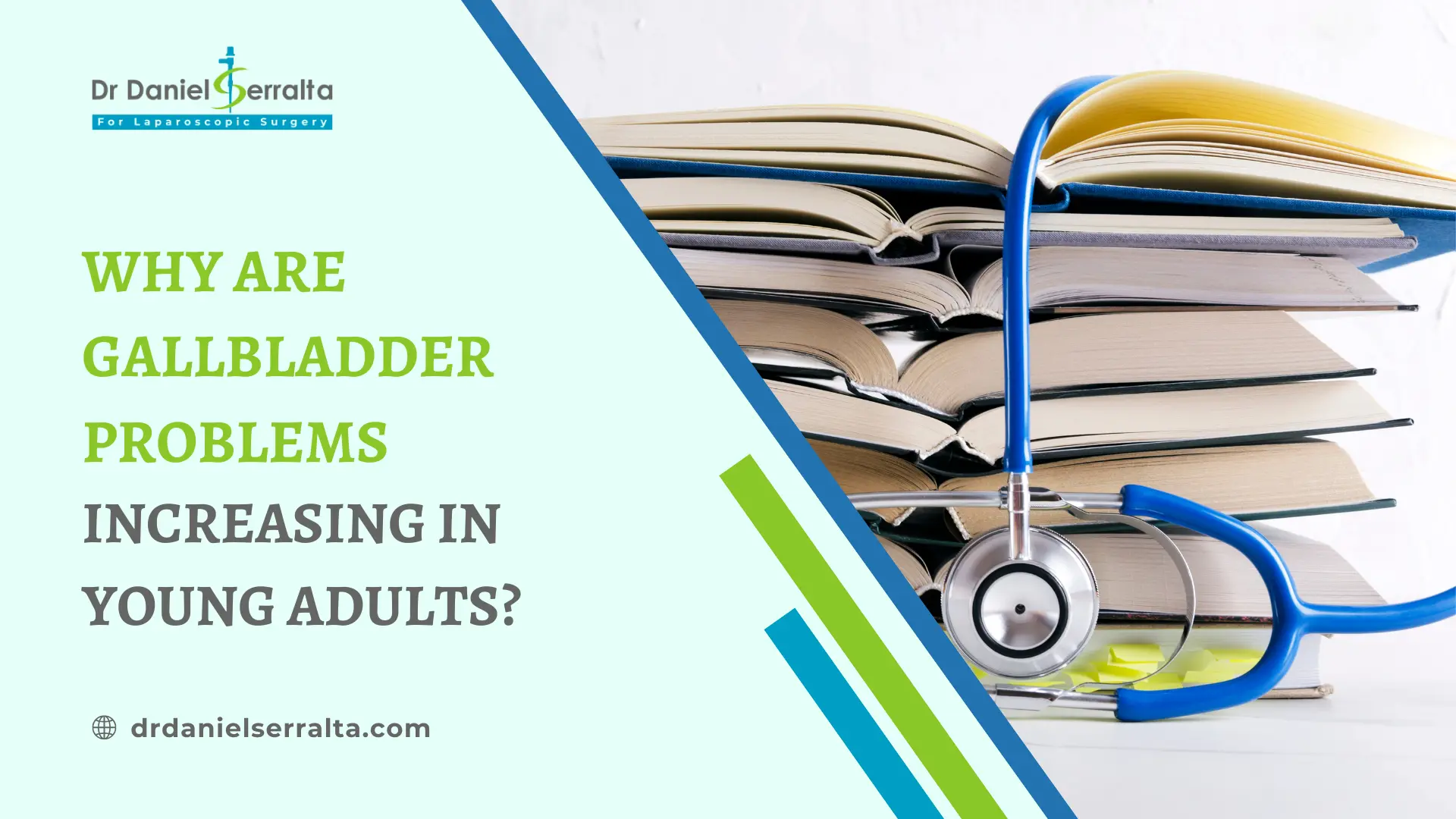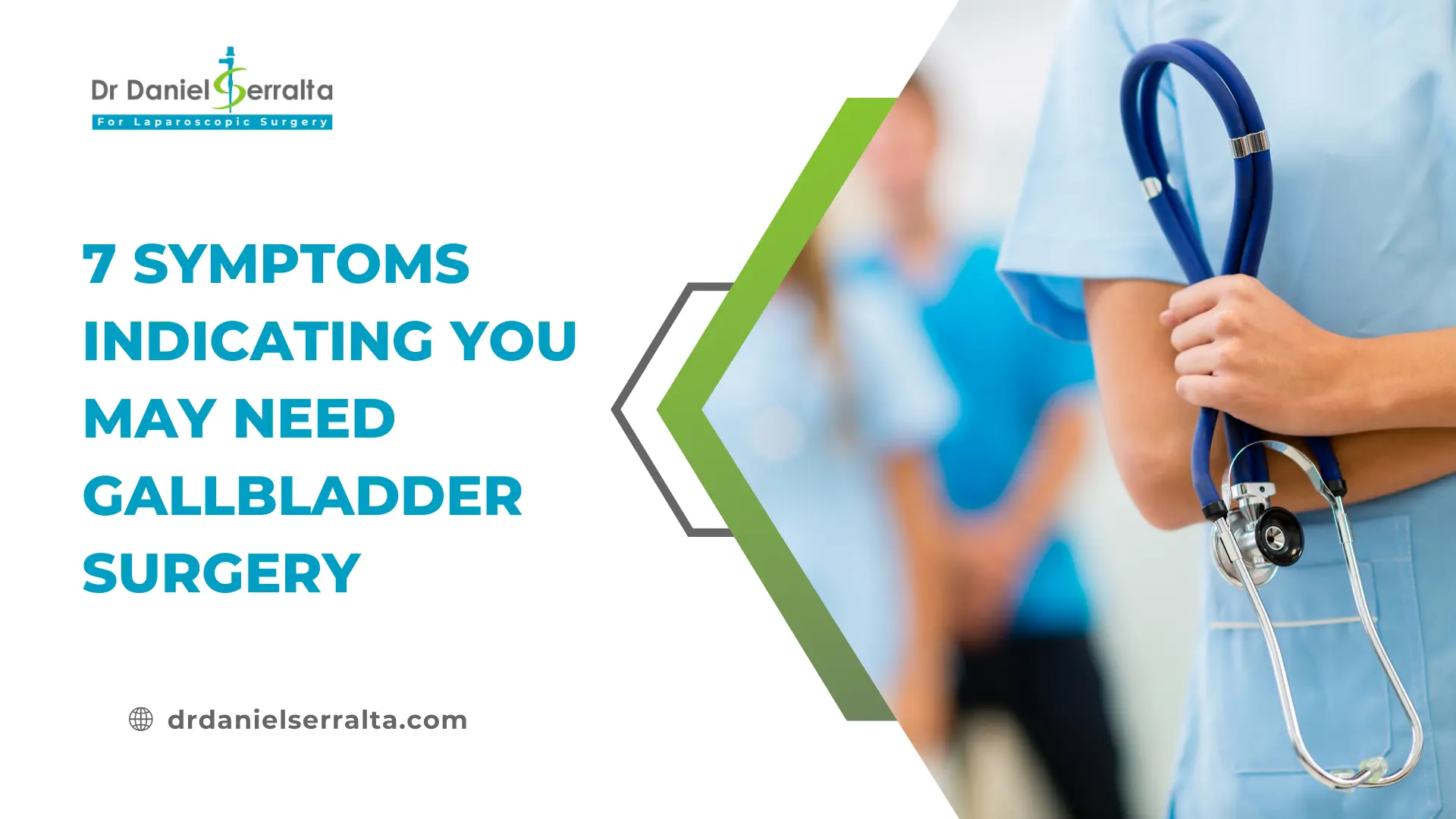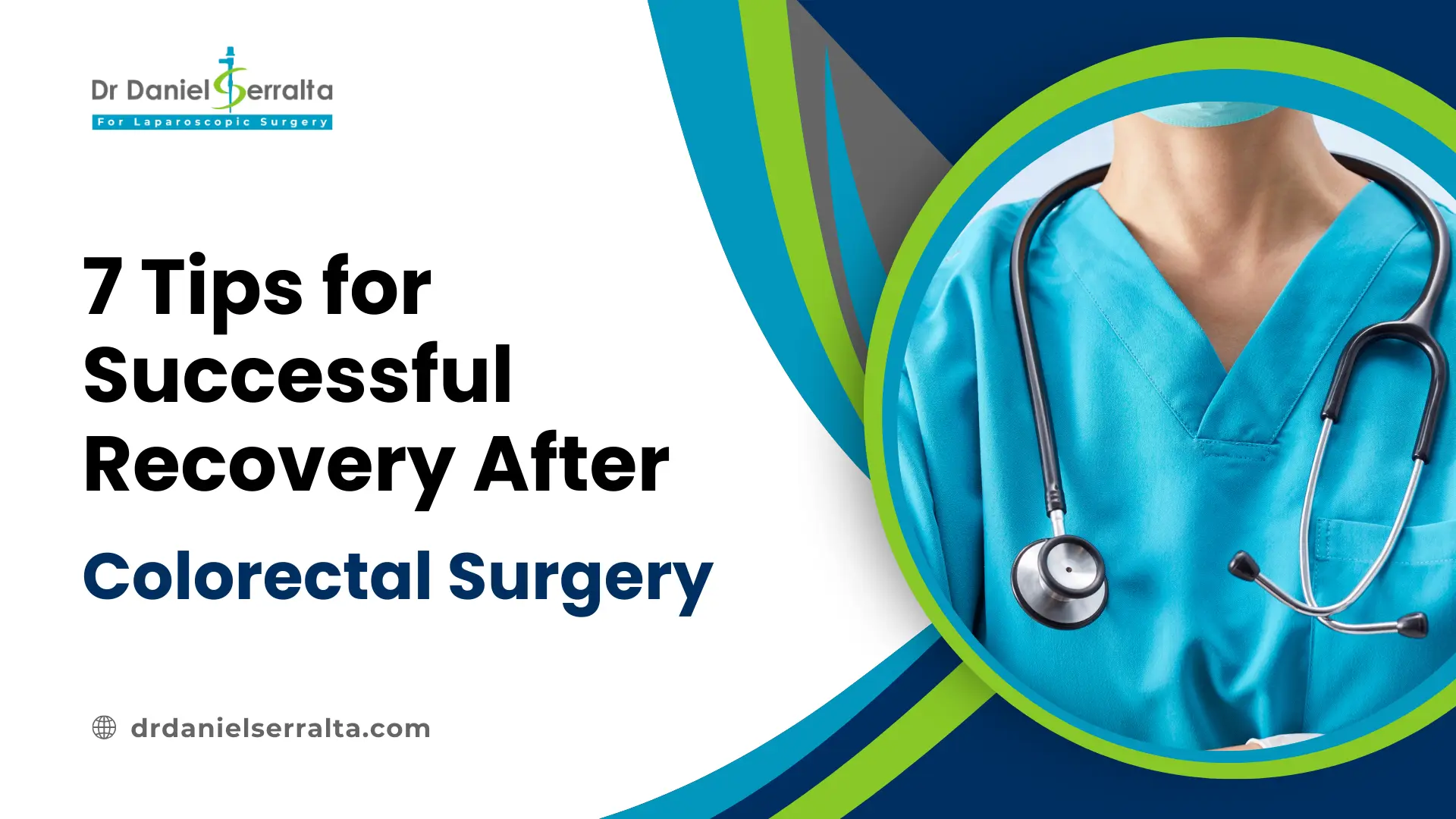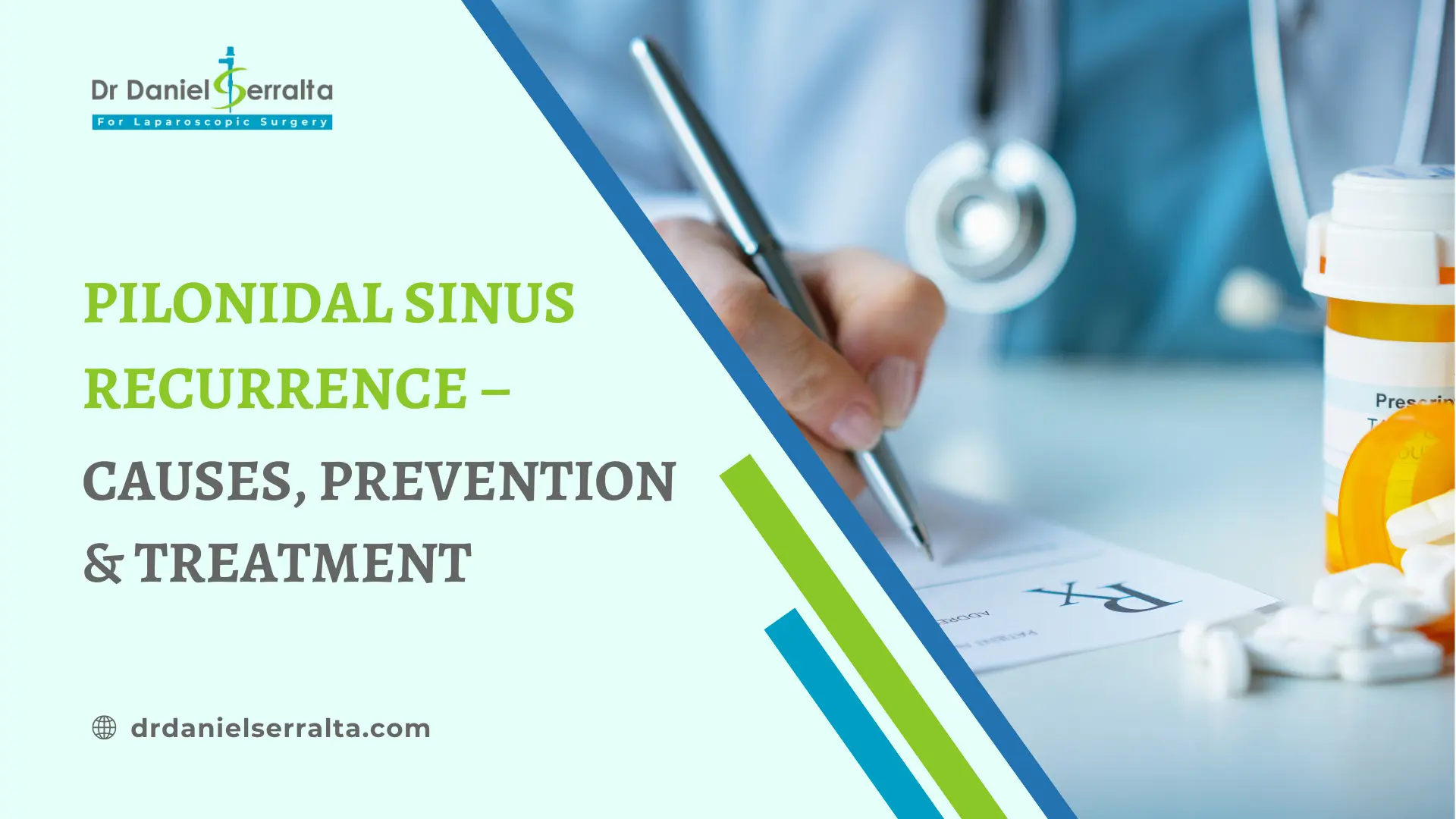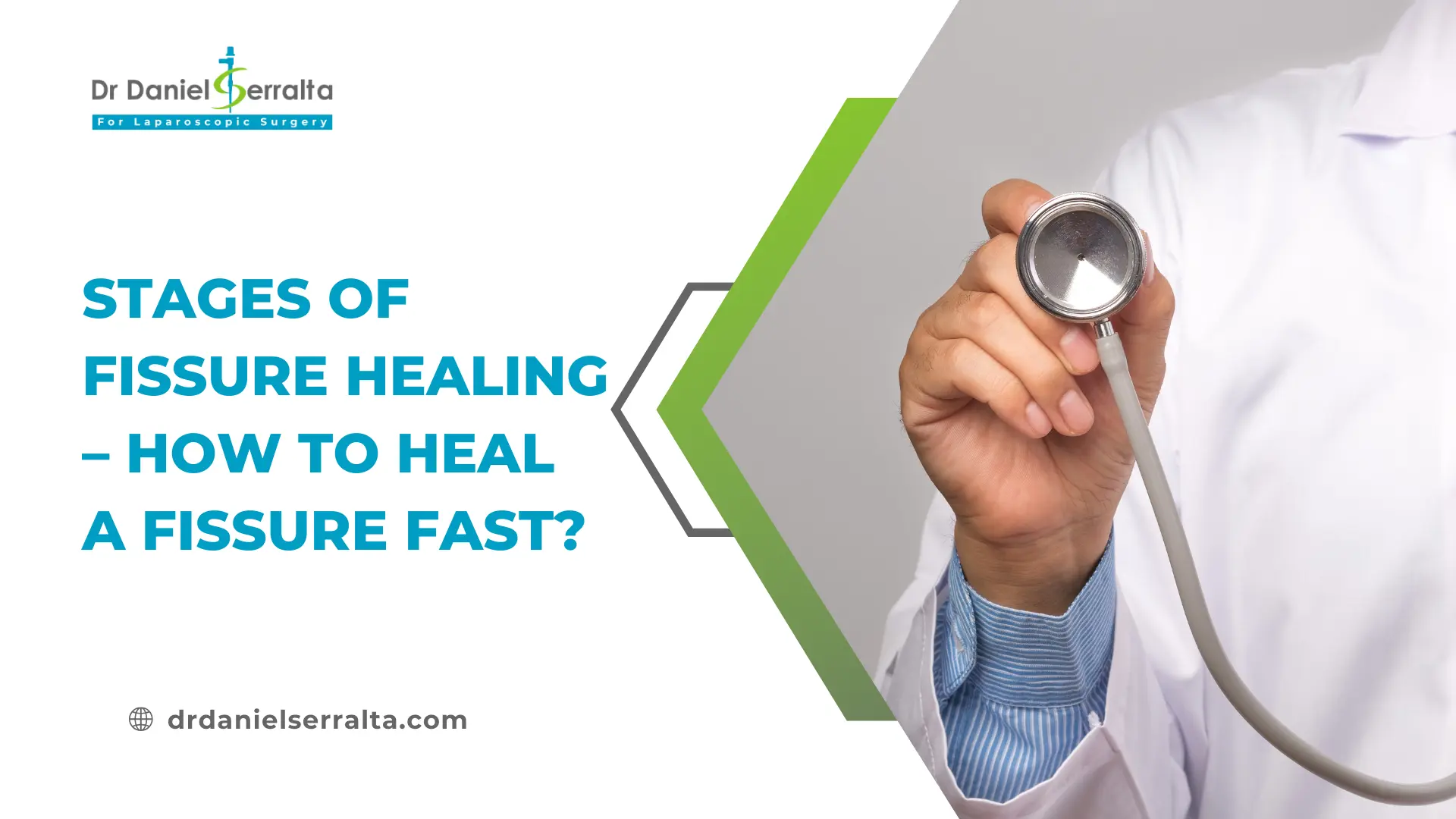Post-Inguinal Hernia Surgery Complications: What’s Normal vs. What’s Not
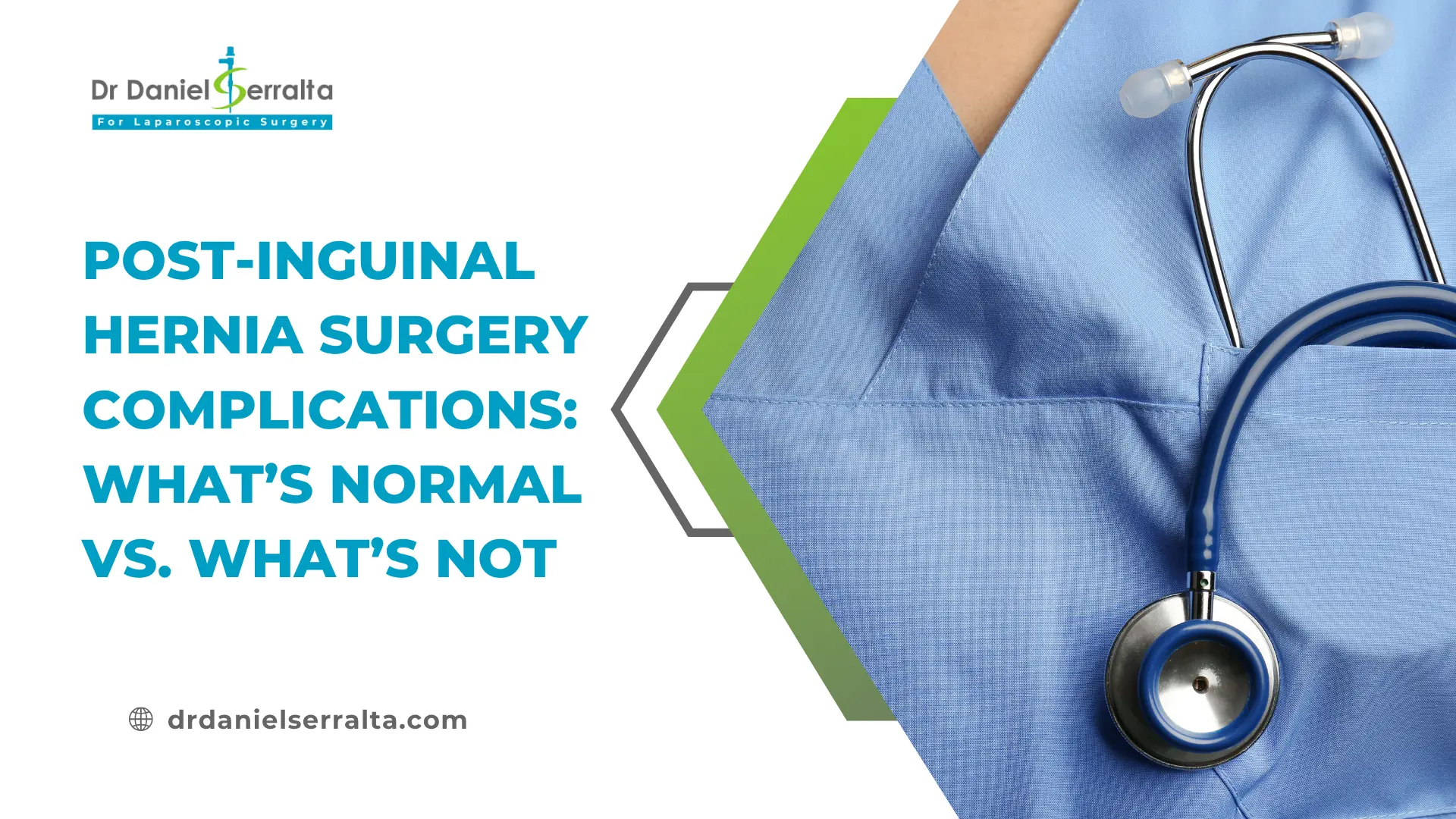
Hernia patients usually inquire about healing symptoms which are normal and danger signs that may indicate complications that they are not aware of. Knowing the difference allows a sense of security and better recovery.
This article on potential post-hernia surgery complications after a hernia surgery directs patients to understand the situation and recognize the solutions provided by a hernia specialist in Dubai that deals with similar daily cases.
Why It Matters in Dubai
A routine lifestyle involving heavy lifting, poor posture, and obesity leads to a high frequency of hernia surgeries in Dubai. Confidence about recovery is boosted when patients get to know normal healing symptoms and those indicating complications.
Improvement in medical technology has resulted in improving hernia surgery in Dubai with minimal losses. Nevertheless, recognition of the possibility of complications is essential for lasting effect.
Normal Recovery After Inguinal Hernia Surgery
Expected Early Symptoms
First of all, we should differentiate between open and laparoscopic techniques.
While after any surgical operation, some patients start to have localized swelling, bruises, and pain, symptoms are considerably milder after laparoscopic surgeries than after open/classic approach. Usually, the symptoms go away in three to four weeks. On the other hand, a little bleeding might be there at the region of the incision. These problems are not indicative of post-hernia surgery complications.
Typical Recovery Timeline
The initial period usually involves an increase of swelling and pain which however subside gradually. Most of the pain significantly drops within the first week. Although exercise is not recommended during the first 6 weeks after surgery (specially that involving lifting weight), walking can be resumed immediately after surgery and is even beneficial for the recovery process.
Recovery times are also different in different people and are influenced by their health condition, age, and the nature of surgery done by the best hernia surgeon in Dubai.
Early Post-Operative Complications
While most recoveries progress smoothly, certain issues require medical attention.
Infection
Signs include redness, warmth, swelling, fever, and discharge from the incision. Prompt treatment prevents severe outcomes.
Antibiotics often resolve mild infections. However, untreated infections may lead to abscess formation, requiring further intervention.
Hematoma and Seroma
A hematoma is a blood buildup, while a seroma is a fluid accumulation. Both appear as swelling near the surgical site, but while in open technique it usually happens immediately below the skin wound, in laparoscopic surgery, as the wounds are far from the actual inguinal region, they can appear in the area where the hernia was, specially if the lump was large.
These collections usually absorb over time. Occasionally, drainage may be necessary to reduce discomfort and prevent infection.
Urinary Retention
Some patients, especially older men, may experience difficulty urinating inthe firsts hours after hernia repair if the anesthesia provided is spinal anesthesia. This is typically temporary and resolves within days. In some cases, a catheter helps restore normal function.
Nerve Pain
Nerve irritation can cause sharp or burning pain near the surgery area. This discomfort often decreases with time but requires monitoring to avoid chronic issues.
Late or Long-Term Complications
Late complications may arise weeks or months after surgery. Recognizing them early helps ensure effective treatment.
Chronic Pain
Persistent pain beyond three months affects some individuals. Known as post-herniorrhaphy neuralgia, it occurs when nerves are compressed. This can happen during surgery, if a nerve is involved in the suturing or even weeks after, as the fibrosis produced by the mesh can retract from a nearby nerve.
Treatment options include medications, nerve blocks, and, rarely, corrective surgery. Consulting the best hernia surgeon in Dubai ensures the correct approach.
Hernia Recurrence
Though rare with modern techniques, hernias can reappear. A new bulge at the surgical site often signals recurrence, but remember, if it happens in the first days after surgery is most commonly a seroma or hematoma than a recurrency.
This complication may require repeat surgery. Proper technique and careful recovery reduce this risk significantly.
Mesh-Related Issues
Surgical mesh strengthens weak tissue but can cause complications. Mesh migration, shrinkage, or infection may lead to discomfort, swelling, or bowel symptoms.
Diagnostic tools like CT scans confirm mesh-related problems. Corrective surgery may be necessary in severe cases.
Bowel and Organ Problems
Bowel obstruction or organ injury remains rare but serious. Symptoms include abdominal pain, bloating, nausea, and changes in bowel habits.
Immediate medical evaluation prevents further complications. A hernia specialist in Dubai can quickly assess and manage such risks.
Diagnosis: How Doctors Evaluate Symptoms
Clinical Evaluation
Doctors assess post-surgery symptoms through a physical exam and patient history. Swelling, discharge, or pain patterns help identify issues.
Imaging Tests
Ultrasound and CT scans detect seromas, hematomas, and mesh complications. These tools offer precise diagnosis without invasive procedures.
Specialized Diagnostics
Chronic pain may require nerve mapping or diagnostic blocks. These assessments help pinpoint the cause and guide treatment.
Managing and Preventing Complications
Early Warning Signs
Fever, persistent pain, redness, discharge, and a new bulge signal potential complications. Seeking medical help promptly ensures faster recovery.
Pain Management
Medications, rest, and gradual activity help control discomfort. Walking encourages healing without stressing surgical sites.
Wound Management
Keeping the wound clean and dry helps reduce the risk of infection. Doctors may prescribe preventive antibiotics for certain cases.
Regular Follow-Up
Scheduled visits at 1, 3, and 12 months post-surgery monitor healing progress. These checks help detect and manage any late-onset issues.
When to Seek Specialist Care in Dubai
Certain symptoms require immediate attention from a hernia specialist in Dubai. These include persistent or severe pain, swelling, discharge, fever, difficulty urinating, or changes in digestion.
Dubai offers advanced facilities and experienced surgeons for prompt diagnosis and care. Choosing the right doctor prevents minor issues from escalating into serious complications.
For complex cases, knowing the hernia surgery cost in Dubai helps patients plan treatments without financial surprises. Most clinics offer clear, upfront pricing.
Conclusion
Recovering from hernia surgery involves understanding what symptoms are normal and what may indicate trouble. Early swelling, bruising, and mild discomfort are common. However, infection, chronic pain, recurrence, or mesh issues require professional attention.
Patients in Dubai benefit from access to top surgeons and advanced techniques. By staying informed and attentive to changes, recovery becomes smoother and safer.
Consult Dr. Daniel Serralta, the best hernia surgeon in Dubai ensures expert care and peace of mind throughout the healing journey.
FAQs
1. How long does recovery take after hernia surgery?
Most patients recover within 4–6 weeks with proper care.
2. Is pain normal after hernia surgery?
Mild discomfort is expected. Persistent or severe pain needs medical attention.
3. Can a hernia come back after surgery?
Recurrence is rare but possible, especially without proper recovery.
4. How do I know if I have a complication?
Signs include fever, swelling, redness, severe pain, or a new bulge.
5. What is the cost of hernia surgery in Dubai?
Hernia surgery cost in Dubai varies by case but ranges from AED 15,000 to AED 30,000.

